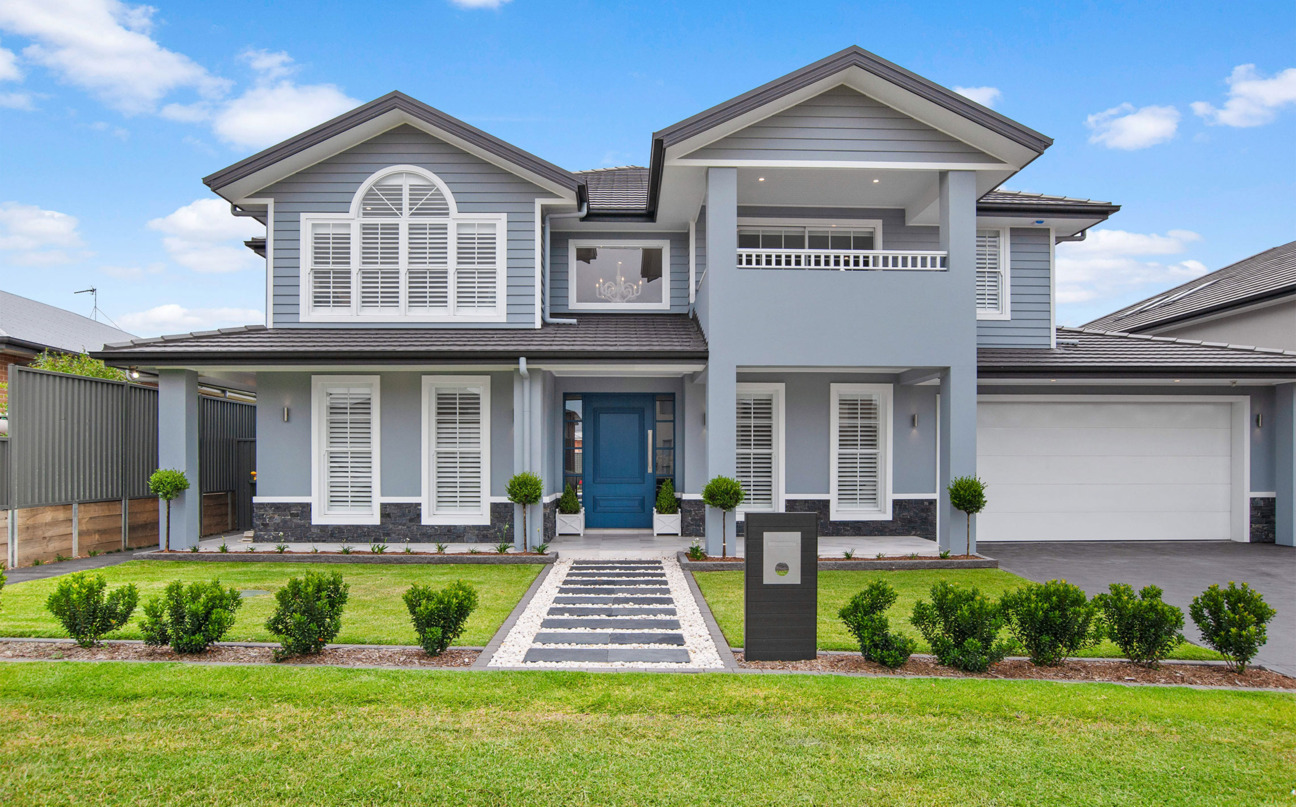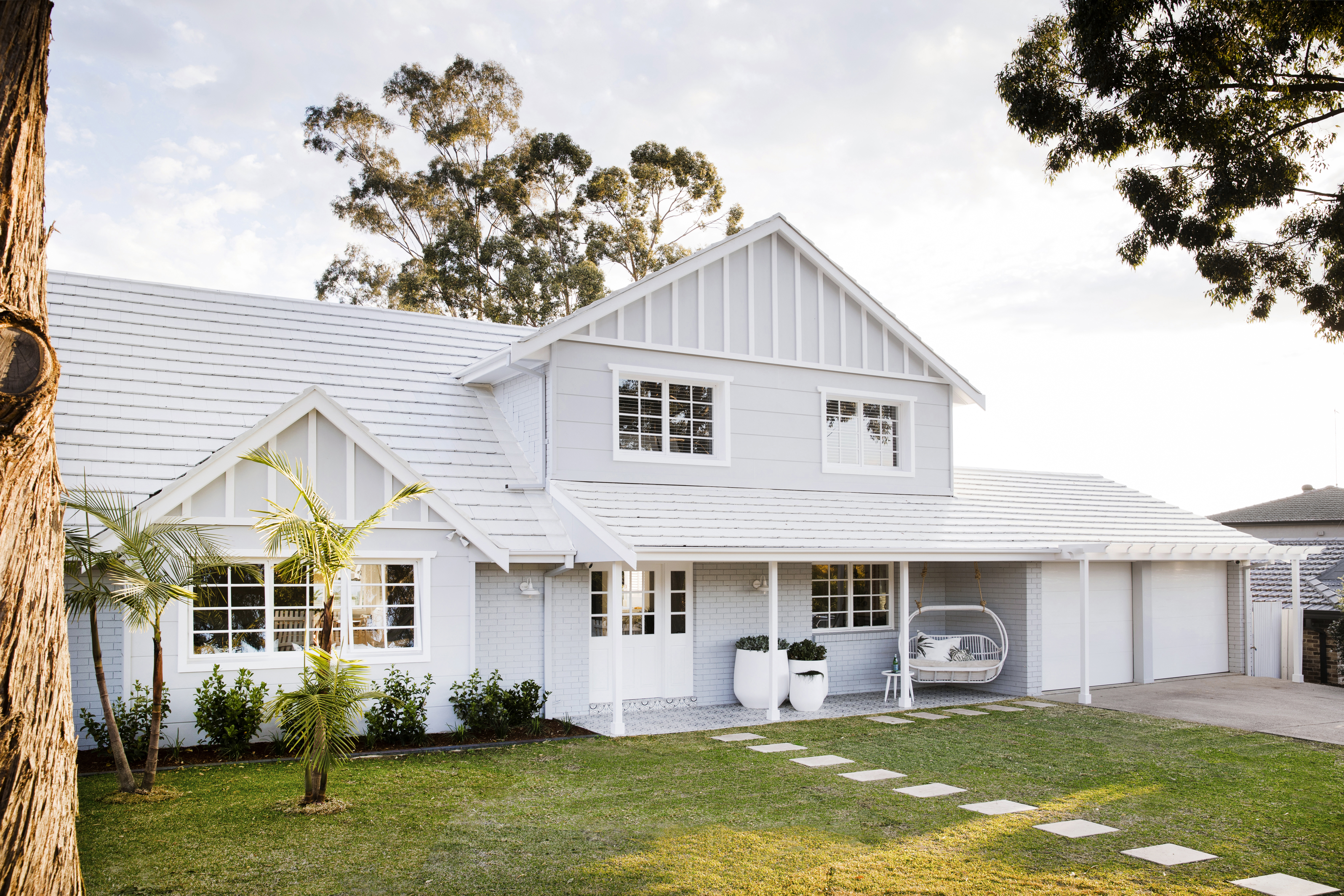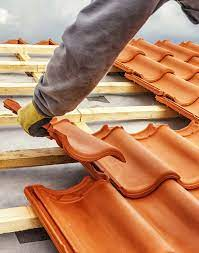CHOOSING A ROOFING MATERIAL
Are concrete or terracotta roof tiles better for my roof?
Our roof tiles come in a range of colours and profiles and offer great value for money. Monier produces both concrete and terracotta roof tiles in a comprehensive range of on-trend colours and in both modern and classic profiles.
Monier’s concrete roof tiles are made from selected concrete, sand and pigments. The concrete used is made to strict specifications and independent testing shows that concrete actually becomes stronger and less porous with age, which is why it is used to build bridges, roads and skyscrapers. Concrete tiles create the ultimate, sleek, clean-line look.
Terracotta roof tiles have been in use for centuries throughout most of the world and it is not uncommon for them to provide more than century of service. Monier’s Terracotta roof tiles are a natural, kiln-fired clay product that provides a strong, high quality roofing material with good looks and long-lasting resistance to the elements. The fired-in colour of Monier Terracotta roof tiles will never fade and their vitreous coating makes them impervious to moisture, harsh UV rays and corrosive airborne pollutants.
Depending on your specific needs, Monier will have a roof tile in either concrete or terracotta that suits your tastes to a T.
Can Concrete and Terracotta tiles be used in coastal environments?
Roof tiles are ideal for coastal locations that endure the wind, spray and salt of the ocean. All Monier concrete and terracotta roof tiles are salt safe and will not corrode over time, however Terracotta is the ultimate roofing product in these conditions given its performance and also colour warranty of 50 years. Some other roofing product are not warrantied if you live near the coast.
Tiles are ideal for coastal regions as they are suitable for the high salt content of marine environments. In the absence of rain, metal roofing may require hosing down in high salt concentration areas, which means extra maintenance, and can pose difficulties with water restrictions.
Roof tiles are a low maintenance option in coastal areas.
What if I live in a cyclone, high wind or storm prone area?
Monier’s terracotta and concrete roof tiles offer unique protective qualities during extreme weather events.
Even during a severe downpour, roof tiles absorb negligible amounts of water. This absorption does not affect the tile’s weatherproofing and in fact, independent research indicates that roof tiles absorb less water as they age, improving performance over time.
The weight of concrete and terracotta roof tiles offer more resistance to high winds than lighter weight materials such as metal sheeting. If damage is sustained during a storm, you only need to replace the individual damaged tiles rather than entire sheets, as in the case of metal roofing.
Flexible pointing material is used to fix ridge capping, enhancing security in high winds. In addition, roof tiles are clipped to secured roof battens to ensure stability in a range of weather extremes. There are clip systems tailored to different roofing pitches and configurations, so you know you are getting the best solution for your home.
For maximum protection, ensure you have a high quality sarking, professionally installed roof tiles and the correct clips to keep everything exactly where it should be – on the roof!
Are roof tiles suitable in colder areas?
Yes. Monier’s concrete and terracotta roof tiles are impervious to frost and ice and so are ideal for those living in colder climates. Made from durable materials, they will never warp, no matter how cold it gets.
Do Roof tiles help to reduce noise?
While most roofing materials will reduce noise, the natural density of tiles significantly reduces external sound, such as aircraft and road noise and particularly rain. A tiled roof has a noise reduction rating of 30 decibels – a significantly higher sound reduction potential than common alternative roofing materials. In addition to blocking out external noise, roof tiles themselves are noiseless – they don’t creak and groan in reaction to changing temperatures, as other roofing materials are known to do.
Your home is your sanctuary and for peace and quiet, Monier’s roof tiles are a great choice.
Do roof tiles offer thermal insulation?
Yes. Concrete and terracotta are poor conductors of heat and cold. As a result roof tiles provide improved insulation when compared to some other roofing materials. The colour of your roof will also affects its relevant thermal insulation performance. >> To see BASIX ratings for our concrete tiles click here
Is water collected off a tile roof safe to drink?
The raw materials used to manufacture tiles are non-toxic, so the water that runs off a tiled roof is potable, however, other factors including atmospheric fallout needs to be considered and the inclusion of a ‘first flush diverter system’ is recommended.
NEW ROOFS
What guarantees do roof tiles have?
All Monier roof tiles manufactured over the past decade come with a 50 Year structural performance guarantee that the tiles will not warp, become porous, corrode or be affected by salt or frost. Additionally Monier Terracotta roof tiles also come with a 50 Year colour guarantee.
What pitch can I put roof tiles on?
The minimum pitch for a roof tile varies depending on the profile. Our Terracotta Nouveau for example can go as low as 12 degrees while most of our concrete tiles can be used to 25 degrees. Consideration needs to be given to the rafter length, wind speed, terrain category and the tiles profile. Further information can be found in our Professional section.
What is Sarking and what are the benefits?
Sarking is a type of foil lining for your roof that is highly recommended for all roofing types including terracotta and concrete roof tiles. Sarking provides insulation and can reflect up to 95% of radiant heat away from the roof space on a summer’s day. Conversely, combined with the thermal properties of Monier’s concrete and terracotta roof tiles, sarking will also help to retain warmth during colder months, improving the overall energy efficiency of your home all year round.
Sarking also assists in sealing dust out of your home environment, and improving fire safety.
Benefits of using Sarking
- Reflects up to 95% of radiant heat entering your roof space
- Provides added thermal insulation all year round
- Stops condensation – minimising the chance of staining and mould growth on your ceilings
- Effective dust barrier – reducing airborne dust entering your home
- Fire safety – prevents burning embers entering the roof space
- Provides additional weather protection during severe storms
How energy efficient are roof tiles?
The passive thermal qualities of materials such as concrete and terracotta have long been employed in creating energy efficient homes. Roof tiles act as a highly effective thermal solution relative to other roofing options.
With rising energy costs, a roof that will help maintain an even climate in your home, no matter how hot or cold the outside temperature might be, is an important consideration. Roof tiles are an excellent choice because their natural density helps to even out temperature fluctuations by storing and then slowly releasing retained temperatures during the day and night.
Regardless of the thermal mass advantage tiles offer, the most crucial factor in maintaining a consistent temperature within your home is insulation. Proper insulation assists with energy efficiency, preventing heat from entering your roof space in the summer and keeping the heat from leaving during the winter.
Does the colour of my roof make a difference?
When selecting a roof tile, colour is one of the biggest choices you will make. Because different colours absorb and reflect heat and light in different ways, Monier has combined the insulation quality of their concrete and terracotta roof tiles with thermal colour technology in order to maximize the energy efficiency of your home year round.
Roof tile colours have a Solar absorbance rating (solar absorbance is the amount of heat transferred through the roof). For example, a light coloured tile will reflect more heat than a dark coloured tile, keeping the roof-space cooler on a hot day.
Monier have made it simple for you to choose the optimum colour for your roof. All our tiles are grouped into light, medium and dark. BASIX states that a dark or medium coloured tile requires insulation. Depending on the specifications for your home, there will be a range of colours to choose from in the appropriate category.
While a lighter colour roof will have higher heat reflection (or lower solar absorptance) than a darker roof, it will not necessarily produce more glare or light reflection. It is possible to get a roof with low solar absorbance AND low light reflection. Users should investigate these options where glare for neighbours may be a concern.
Where can I see your roof tiles?
We have projects all over New Zealand, as well as a showroom in Auckland and Christchurch. Get in touch with us to arrange a visit.
EXISTING ROOFS
I have a leaking roof. What should I do?
Leaks are most often confined to small areas and usually occur as a result of one or more of the following problems:
- Blocked gutters (including valley gutters) and downpipes. These should be cleaned out.
- Cracked or broken cement mortar bedding to the ridge or hip capping. Capping should be re-bedded or re-pointed.
- Cracked or broken roof tiles. Individual roof tiles should be replaced.
- Roof tiles displaced. Displaced tiles should be put back in their proper position.
- Blocked drainage channels under the ‘sidelaps’ of individual tiles. Any build up of dirt or debris should be removed.
- Flashings blocked, damaged or displaced. These problems should be corrected.
If your roof has a leak, it is always best to employ an expert tradesperson to undertake the work for you, as accessing and walking on roofs can be dangerous.
It’s important to note that respraying your roof is aesthetic only and will not repair your roof. To contact your local Monier Roofing Specialists follow this link: Find A Roofer.
What are the white marks on my roof? How can they be removed?
Occasionally, the natural salts within a concrete tile can migrate to the surface as a whitish grey discolouration called efflorescence or ‘bloom’. This has no effect on the performance of the tile. Although common to many concrete products, efflorescence does not always occur and should disappear naturally over time.
Do concrete tiles fade?
Yes, the colour of your concrete tiles will fade and weather over time. This coating is purely decorative, and plays no role in any protective or waterproofing function. Over several years, the colour coating of your tiles may take on a more subdued, matt appearance because of the effects of air pollution and powerful UV rays from the sun. This change in appearance has no effect on the tiles performance or its structural adequacy.
Terracotta tiles, however, do not fade as the colour is baked into the tile.
Do concrete roof tiles become porous as they age?
Concrete roof tiles like all concrete products become stronger and less porous over time, provided they were manufactured to the appropriate New Zealand Standard.
Does lichen growth affect the durability of roof tiles?
In some climates, moss and lichen can grow on your tiles. They will not affect your tiles in any way, and can add character to your roof. However, if you prefer the clean lines of your tiles, both moss and lichen can be easily removed with high pressure water jet cleaning or by using other commercially available cleaning products. (Always consider the environment when using chemical products).
Can terracotta tiles be painted?
The painting of terracotta tiles is not recommended; however, unglazed terracotta tiles can be painted but once painted will require ongoing recoating.
ROOF MAINTENANCE
Do tiled roofs require ongoing maintenance?
Although your roof tiles are structurally guaranteed to perform their function for 50 years, there are still some things to look out for when it comes to caring for and maintaining your roof.
The number one maintenance issue is cleaning the gutters, downpipes and valleys of your roof. Gutters, downpipes and valleys can become easily built up with debris such as leaves and twigs from trees.
When gutters, downpipes and valleys become blocked, you get a build up of water that overflows back into your roof, which can create an enormous amount of water damage. This kind of build up also represents a potential fire hazard, as dry leaves and twigs are extremely combustible. This is easily preventable by a regular check to make sure your gutters, downpipes and valleys are free of debris. You should try to check and clean your roof at least once a year, twice if you live in a particularly tree lined area.
By regularly maintaining your roof you will go a long way to preventing any major problems occurring.
Are roof inspections necessary?
Every five to seven years you should have your roof checked by an expert tradesperson.
A comprehensive list of Monier Roofing Specialists can be found by clicking this link: Monier Roofing Specialists



